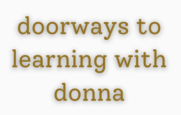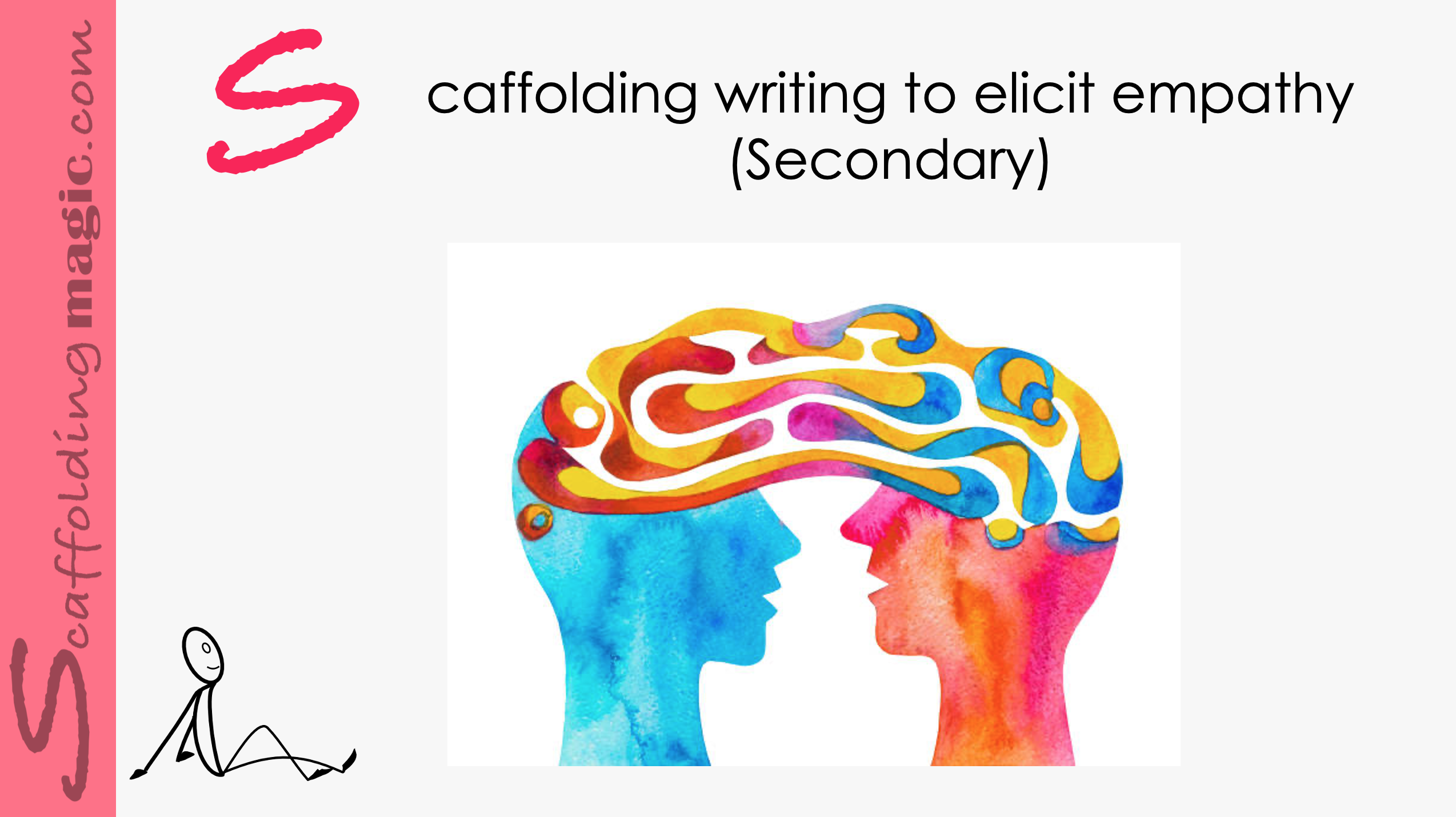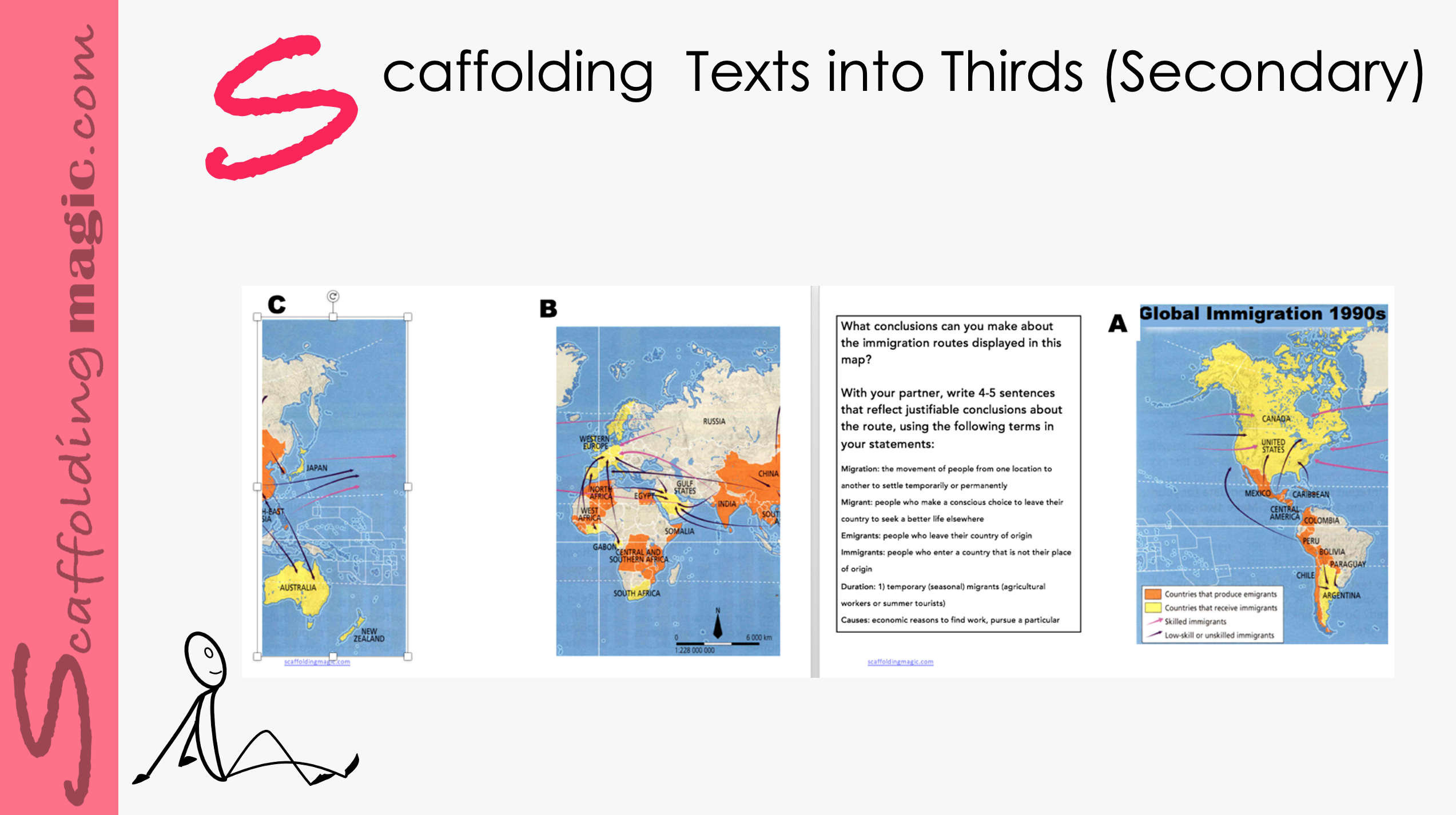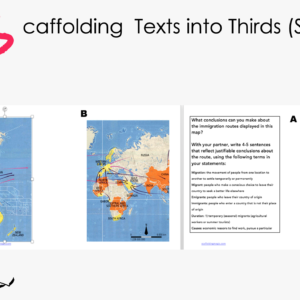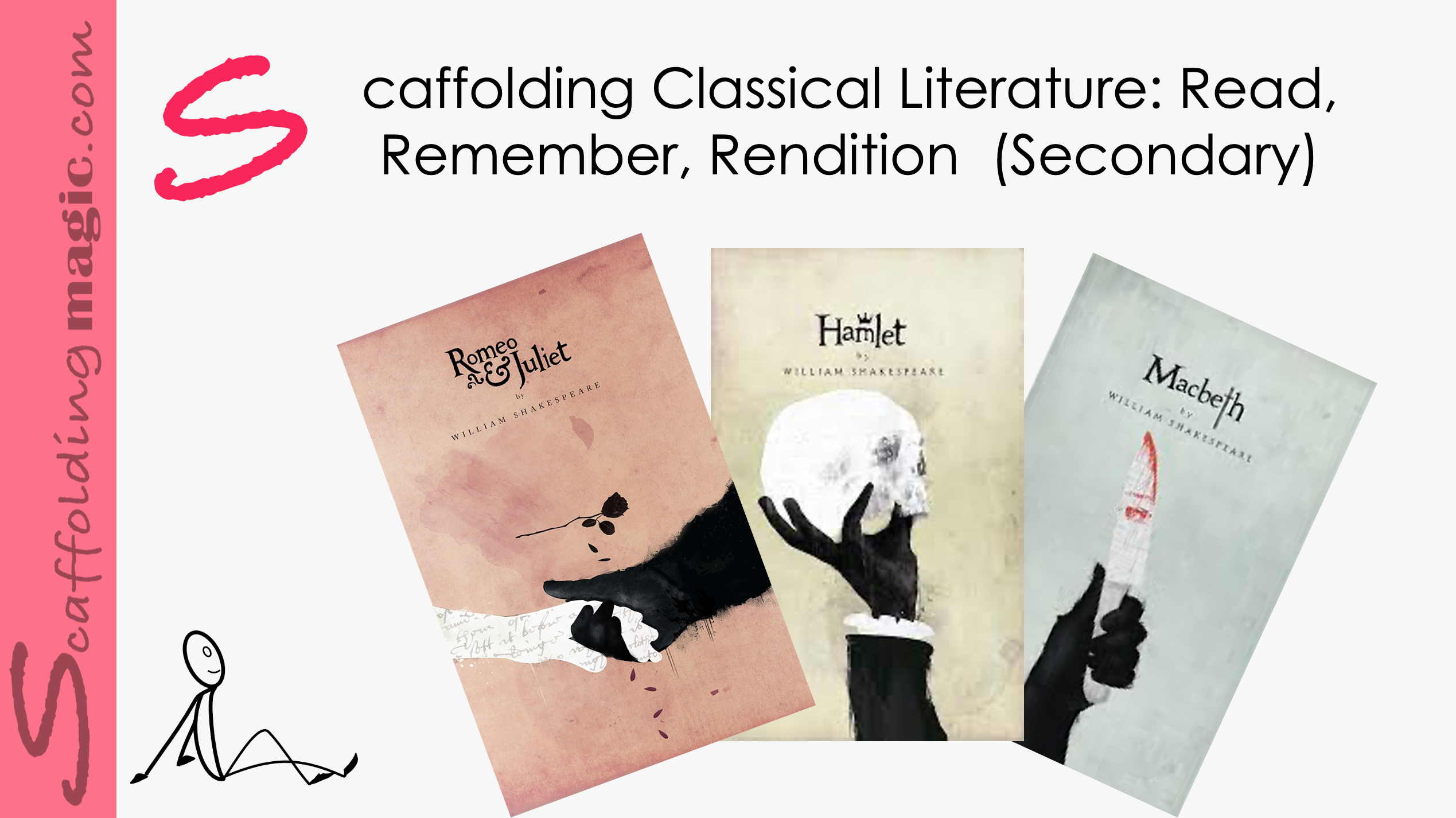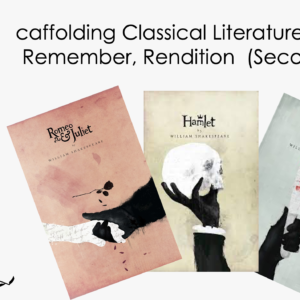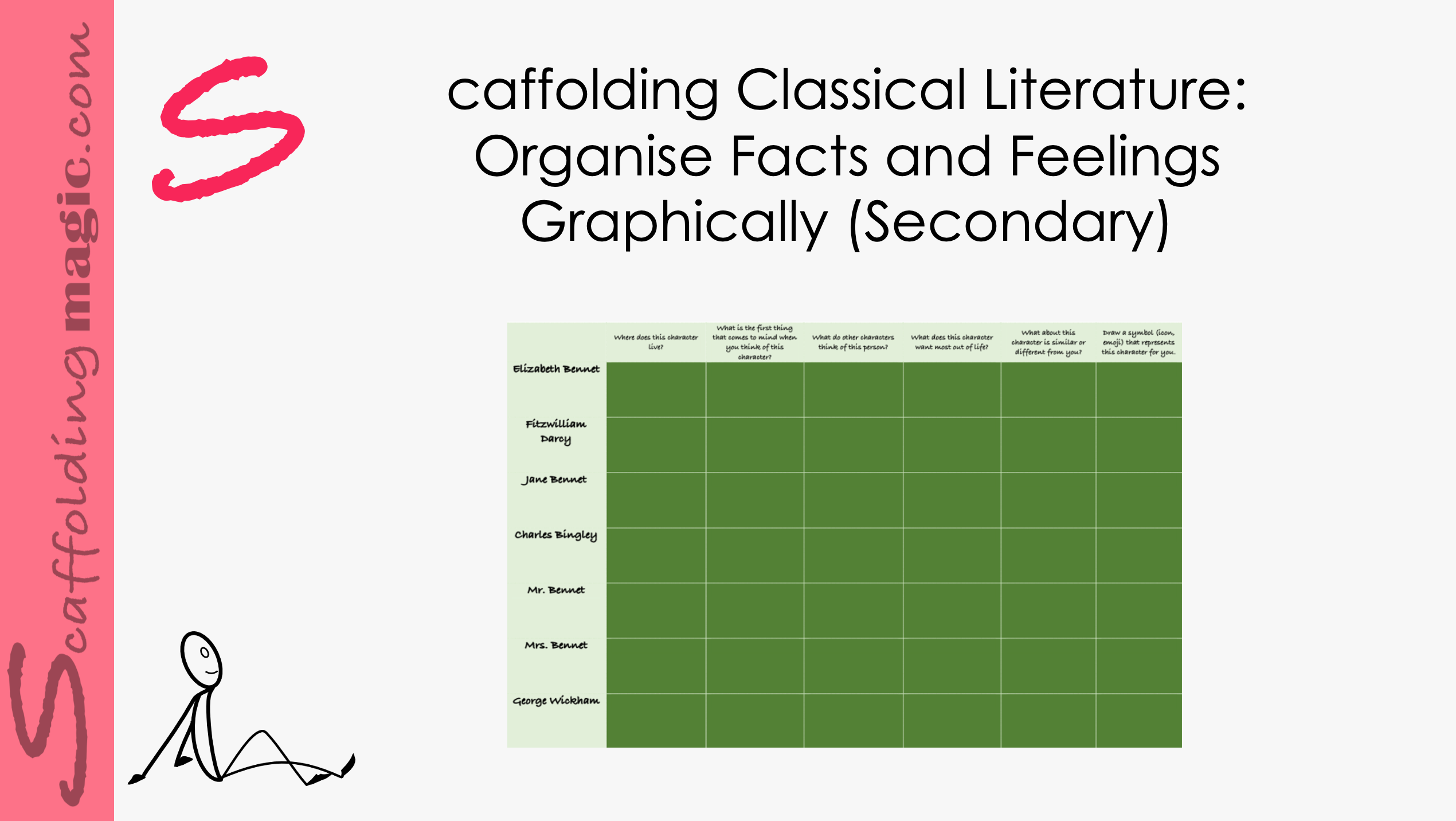Writing is one of the four cornerstone skills of every inclusive educational curriculum. It helps us form our thoughts into coherent verses and communicate over distance and time. It is a skill usually approached as a way of appeasing bands for standardised exams, but, in fact, is the perfect tool to foster the development and expression of empathy.
Scaffolding Writing to Elicit Empathy (Secondary)
$5.00
Writing is one of the four cornerstone skills of every inclusive educational curriculum. It helps us form our thoughts into coherent verses and communicate over distance and time. It is a skill usually approached as a way of appeasing bands for standardised exams, but, in fact, is the perfect tool to foster the development and expression of empathy.
Related products
- Quick View
-
Secondary ScaffoldsQuick View
Scaffolding Classical Literature: Read, Remember, Rendition
$5.00 Add to cartRated 0 out of 5 - Quick View
-
Secondary ScaffoldsQuick View
Scaffolding Activity for Classic Literature 4: Organise Facts and Feelings Graphically
$5.00 Add to cartRated 0 out of 5
Scaffolding Texts in Thirds (Secondary)
This scaffold presents one technique you can use to combat this human tendency of laziness – of relying on memory instead of working actively to further knowledge. We use here a social science lesson on global migration, and you’ll see how you can adapt it to any lesson you’re about to begin.
This scaffold presents one technique you can use to combat this human tendency of laziness – of relying on memory instead of working actively to further knowledge. We use here a social science lesson on global migration, and you’ll see how you can adapt it to any lesson you’re about to begin.
janice added this to see
Scaffolding Classical Literature: Read, Remember, Rendition
Through varied techniques, the reading of authentic classic literature is an incredibly enriching experience (although your students may not appreciate or admit this until years later!). Presented creatively, you may find that otherwise uninterested students will happily participate in activities that review/clarify details of the stories and so be able to interact with the literature more confidently.
This activity focuses on the purity of Shakespeare’s language. Let the students roll it around in their mouths and feel the strangeness and how satisfying it is when they can finally pronounce some of the dialogue.
Through varied techniques, the reading of authentic classic literature is an incredibly enriching experience (although your students may not appreciate or admit this until years later!). Presented creatively, you may find that otherwise uninterested students will happily participate in activities that review/clarify details of the stories and so be able to interact with the literature more confidently.
This activity focuses on the purity of Shakespeare’s language. Let the students roll it around in their mouths and feel the strangeness and how satisfying it is when they can finally pronounce some of the dialogue.
Scaffolding Human Rights (Secondary)
March 25th is the International Day of Remembrance of the Victims of Slavery and the Transatlantic Slave Trade. As educators, it’s vital for us to pass on bits of history so that even our youngest learners can internalise the injustice of what happened, in order to create more hope for the human population of today. Most history texts are written in depersonalised structures (passive tense with no recognisable narrator’s voice), and so are divorced from a tangible context that we usually need to connect to the information. Let’s add humanity and feeling to history so that our students see the connection to what happened in the past, their reality, and what they can do to make positive changes in the future.
March 25th is the International Day of Remembrance of the Victims of Slavery and the Transatlantic Slave Trade. As educators, it’s vital for us to pass on bits of history so that even our youngest learners can internalise the injustice of what happened, in order to create more hope for the human population of today. Most history texts are written in depersonalised structures (passive tense with no recognisible narrator’s voice), and so are divorced from a tangible context that we usually need to connect to the information. Let’s add humanity and feeling to history so that our students see the connection to what happened in the past, their reality, and what they can do to make positive changes in the future.
Scaffolding Activity for Classic Literature 4: Organise Facts and Feelings Graphically
Here is a scaffold that will help your students keep track of the many characters in the story. Aside from the facts and family trees which can help enormously in following the plot, the graph encourages the students to pay attention to personalities and actions so they can make connections to them and people in their own lives – a key in engaging our students.
Here is a scaffold that will help your students keep track of the many characters in the story. Aside from the facts and family trees which can help enormously in following the plot, the graph encourages the students to pay attention to personalities and actions so they can make connections to them and people in their own lives – a key in engaging our students.
